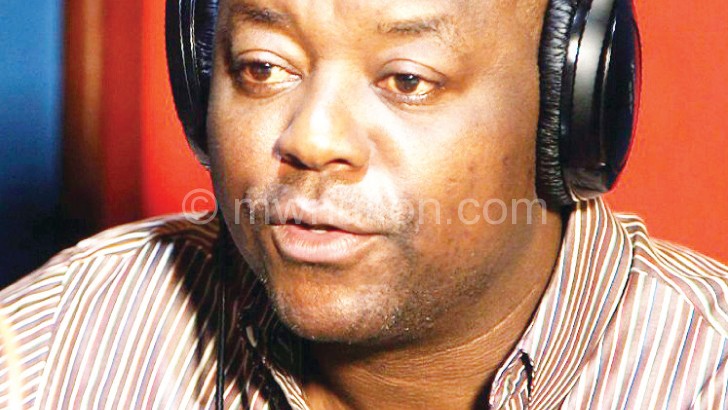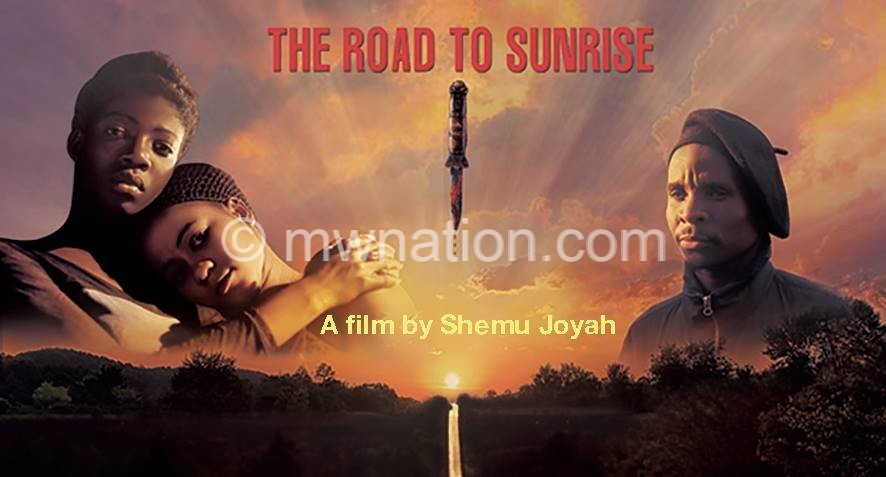We are not just private, we are independent
Ever since they burst into the media scene, Zodiak Broadcasting Station (ZBS) has become a formidable brand, transforming the landscape with their ‘zikachitika mumvera kwa ife’ mantra. It has been 10 years since Zodiak went on air. CHILL engages the institution’s managing director Gospel Kazako on the journey thus far as well as the journey ahead.

Q
: Ten years since, how can you describe the journey so far?
A
: I think it has been a journey filled with lots of challenges and some opportunities. It has been a journey that has been a process of learning and surmounting certain problems and difficulties. So, it has been a bouquet, it has been a combination of both. But generally, it has been a very exciting journey because we continue to revolutionalise electronic media in the country. We started this 10 years ago and we will continue. You will agree with me that electronic media was not what it is until when we humbly came on the market. The standards have gone high and everyone is working hard to make sure we are serving the listener well. So, we have enjoyed taking our role, we have enjoyed doing what we do.
Q
: That said, what is distinctive about Zodiak that sets it apart from other electronic media houses?
A
: We are not just private, we are independent. We have stood up and been able to define what independent means. Because it’s different to be a private media and it’s different also independence. We don’t want to talk about others, we want to talk about ourselves. We are independent and private and that’s what makes us different. We don’t take instructions from anyone, there is no political figurehead or political grouping or any other grouping somewhere that gives us instructions. We were founded on non-political grounds, we have never been political. So, I think that gives us a huge edge over the rest.
Q
: Recently, Zodiak ventured into television with the introduction of Zodiak TV. What is your impression of television so far?
A
: It’s not bad. The market is learning to embrace television. This country has been a radio nation, unlike other neighbouring countries such as Zambia and Zimbabwe which such as television as early as the ’70s. Malawi had the first television in 1998 and the private television stations have just started coming in and people are having to learn how to consume television.
So, we can say that we are moving steadily and cautiously and every day we are learning something new. And we are also very happy that we are getting a lot of support from our viewers. Our viewership and client bases are growing every day.
We are still exploiting other opportunities that would sustain the operations because it is not easy; television is very expensive. To produce content for television is very expensive.
Q
: So, what are the solutions?
A
: This is why we have petitioned government to ensure that the platforms that are coming in this country, television stations must have a choice either to have their signal paid for—where it will be driven by subscribers—or to put it on FTA [free to air]. You see, all the television stations that you see across the world, be it through DStv, GOtv and all of them, people pay to watch.
That is why the producers are motivated to come up with content. As long as we make our television to be free, it would take a long time to develop. It is only fair that the policies must point towards having people subscribing. Free things will always be free things and if are to attain the necessary quality quickly, we need to make sure that there are policies that support the subscription. They call it conditional access.
Q
: How far has Zodiak gone to create and promote an environment where producers thrive?
A
: We can only promote if the business side of it is good; hence, our strong belief that there have to be conditional access. I will give an example: when someone makes a movie in Malawi, mostly people watch it for free. In other countries, for you to watch a movie, you need to pay. The ripple effect is that the money gets to the producers and the actors.
We need to advance policies to teach the consumer that this is not a free service. In other countries, people even pay for radio. These are the things that we need to look at. Sometimes the local industry is criticised for not matching up to international standards, but it’s all about money, it’s about someone paying. And in this case it is the consumer who is supposed to pay.
Q
: Do you believe there is potential for local productions to stand up to international standards?
A
: A lot. And I want to put this on record. I think we have better producers than even Nigeria and South Africa. When you watch music videos that our music producers are coming up with, you see a lot of brilliant stuff that makes you wonder if it was shot in Malawi. You can imagine that this is being done in a shrinking economy like ours, that it is being done when these producers are not well paid. I know people have a budget of about K200 000 for a music video. Yet the music videos that we see on different international television stations, that might not even match with our quality, people budget K40 million. So, we shouldn’t blame the quality; we should blame the relationship between those who produce, those who broadcast and those that consume.
Q
: Now, it has been 10 years since you launched Zodiak, what should we expect for the next 10 years?
A
: We will be exploring other avenues. We will also be changing a little bit; that change has already started. But we do not want to be loud about it. We are aware that the majority of this country are young people and obviously the way we were broadcasting 10 years will not be the same. Their aspirations have changed, the politics has changed, the direction of the nation is what it is; you and me know it.
So, we also need to change how we do things. How we change is part of our strategy so we wouldn’t share that. But we know that certain dynamics have changed and it is our intention to continue serving the nation as the biggest electronic media house. And we can only do that by taking lead in the change that is much needed. n





